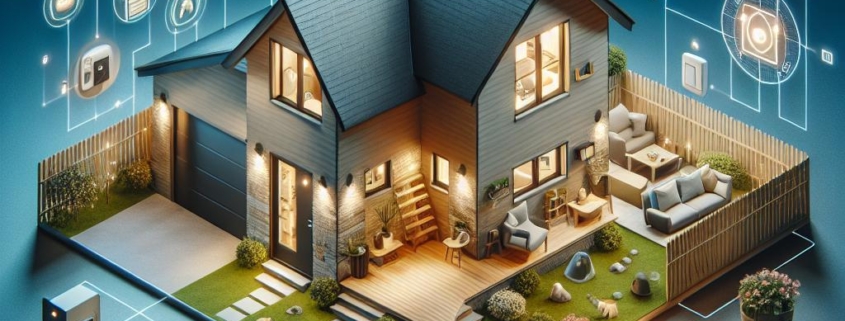Transform Your Home Security: The Ultimate Guide to Easy and Effective Tips, Tricks, and Products for a Safe 2021
10 Easy Home Security Solutions to Protect Your Property
In the modern world, ensuring the security of your home is a top priority for many homeowners. Thanks to technological advancements, there is a wide range of options available to help you safeguard your property. Whether you are on a tight budget or lack technical expertise, there are simple yet effective home security systems and property security ideas that can provide the protection you need.
-
Smart Home Security Camera Installation Made Simple
Enhancing your home security can be as easy as installing a smart home security camera. These cameras are user-friendly and can be set up within minutes, allowing you to monitor your property in real-time through your smartphone or computer. -
Basic Home Security System for Peace of Mind
A basic home security system typically consists of door and window sensors, a control panel, and an alarm. This type of system is easy to install and offers a fundamental level of protection for your home. -
Enhancing Safety While Living Alone
Living alone can raise safety concerns, but there are practical steps you can take to increase your security. Installing a home security system, using smart doorbells, and having a trusted neighbor check on you regularly are all simple ways to boost your safety. -
Rise of DIY Home Security Systems
DIY home security systems are gaining popularity due to their affordability and ease of installation. With step-by-step instructions, these systems can be set up without the need for professional assistance. -
Peace of Mind with a Simple Security Camera
A straightforward security camera can offer added peace of mind by enabling remote monitoring of your home. Whether you opt for a wired or wireless system, a security camera can act as a deterrent to potential intruders and provide valuable evidence in case of a break-in. -
Effective Outdoor Security Lighting Strategies
Outdoor lighting is a cost-effective way to enhance your home security. Motion sensor lights, solar-powered lights, and smart lighting systems can help deter intruders and improve visibility around your property. -
Stay Informed with Home Security Tips for 2021
Keeping up-to-date with the latest home security tips is essential for safeguarding your property. From installing smart home devices to securing your Wi-Fi network, there are numerous measures you can take to protect your home in 2021. -
Key Strategies to Prevent Burglary
Preventing burglary begins with implementing a robust home security plan. This includes installing security cameras, using smart door locks, and being cautious about who has access to your home. -
Convenient CCTV Systems for Home Security
Closed-circuit television (CCTV) systems are a popular choice for home security as they offer continuous monitoring of your property. With easy-to-install options available, you can keep a watchful eye on your home 24/7. -
Diverse Security Ideas for Homes
There is a wide array of security ideas for homes, ranging from basic alarm systems to advanced smart technologies. By combining different security measures, you can create a comprehensive security plan tailored to your needs.
In Conclusion:
Securing your home doesn’t have to be complicated or expensive. By exploring simple and effective home security solutions, such as basic alarm systems, smart cameras, and outdoor lighting, you can enhance the safety of your property. Staying informed about the latest security trends and taking proactive steps to protect your home can provide peace of mind and ensure the safety of your loved ones. Remember, investing in the security of your home is a worthwhile endeavor, and with the right tools and strategies, you can achieve a high level of protection without exceeding your budget.





